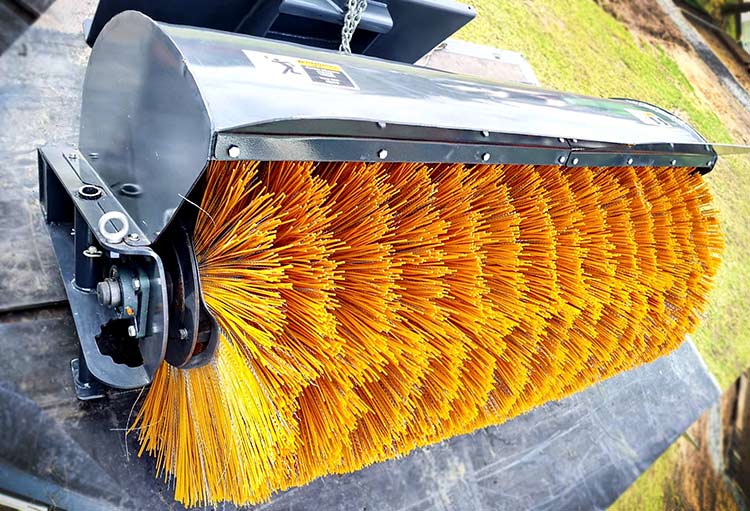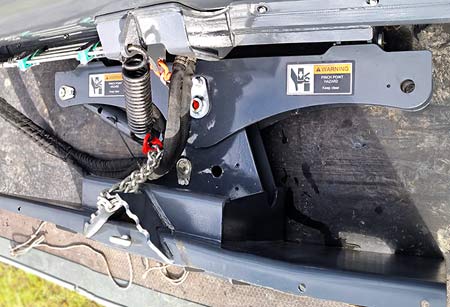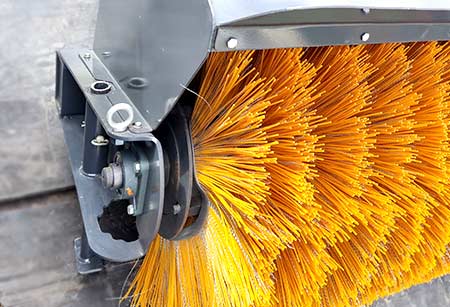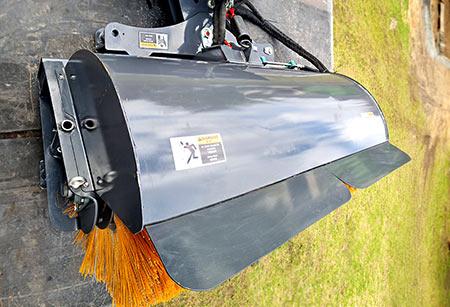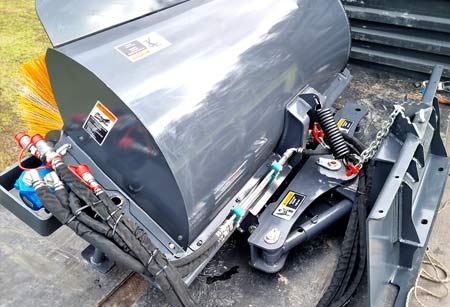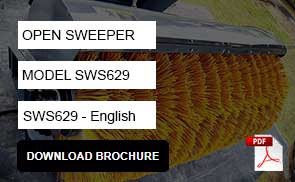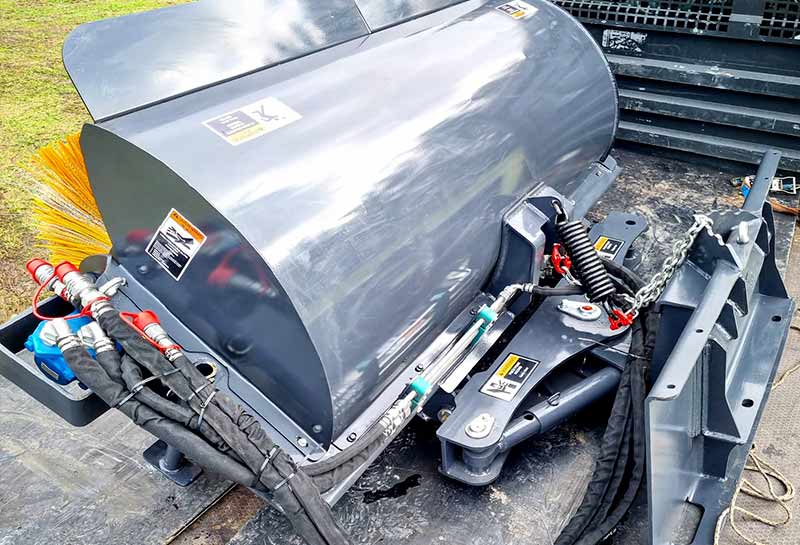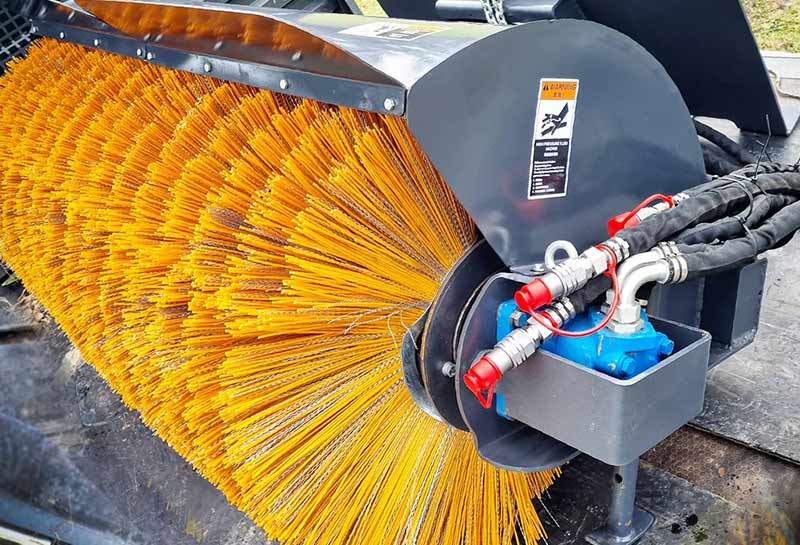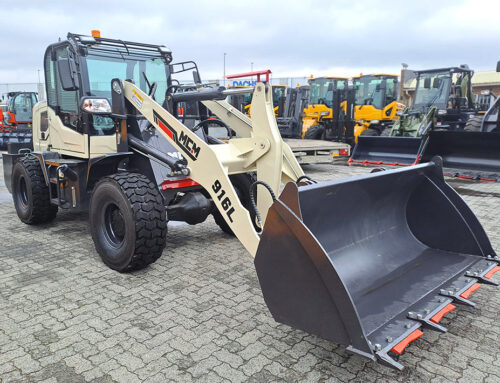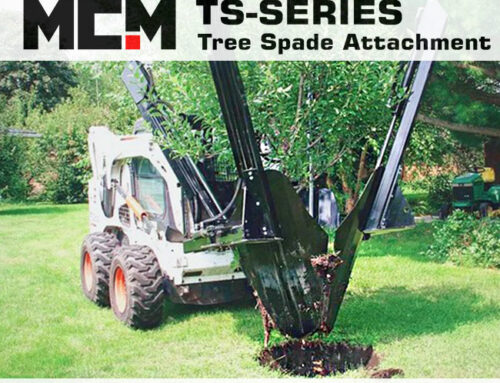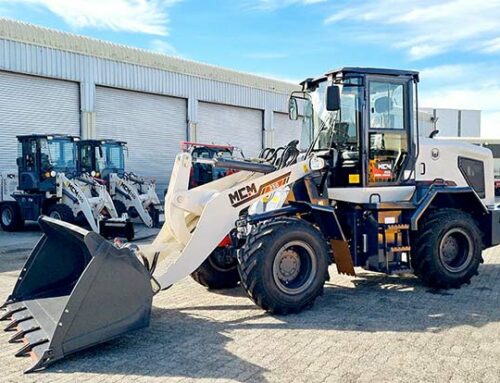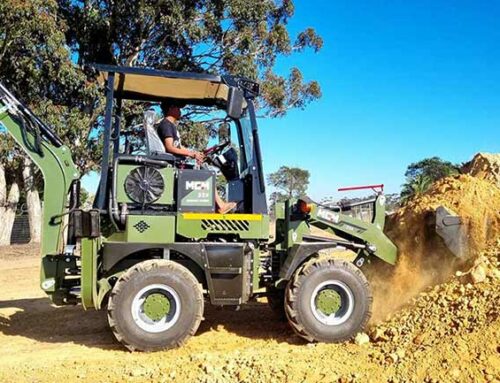The SWS629 model angle broom attachment uses a hydraulically-driven, rotating broom that pushes dirt and other debris away from the machine. The angle broom will continuously sweep debris ahead of the machine or angle the broom to windrow material to the side. To easily sweep debris away from obstacles, the broom can reverse direction and pull toward the machine, leaving behind clean corners and angles.
The broom bristles have a waved design, delivering more surface clearing ability. This clears a cleaner path and can sweep more debris in one sweep. The angle broom attachment is compact, maneuverable and easy to operate, replacing manual labor and hand brooms with great efficiency. Clean small and large areas with less effort and in less time. Saving your business time, and money.
Features:
- Compact Design: The angle broom is compact & highly maneuverable.
- Angle Control: Mechanical or Hydraulic Angling up to 30 degrees.
- High-Torque Motor: Allows for maximum power for more efficient sweeping.
- Spring Design: Provides optimum down-pressure, extended bristle life and excellent cleaning ability.
- Bristles: Replaceable, wafer polypropylene bristles provide excellent life cycles and performance.
- Easy Maintenance: Quick-change rotor design makes bristle replacement quick and easy.
- Storage Stands: Maximum protection by eliminating bristle distortion when the broom is not in use.
Uses:
- Clean parking lots, sidewalks, docks, warehouses, jobsites, driveways, yards, etc.
- Scrape mud and other caked-on materials from roadways, driveways, and other jobsites.
Specifications:
| MODEL | SWS629 |
|---|---|
| Overall Length | 1285mm |
| Overall Width | 1840mm |
| Overall Height | 74mm |
| Working Width | 1425mm |
| Overall Weight | 300mm |
| Turning Angle | +- 30° |
| Working Width at 30° | 1195mm |
| Brush Diameter | 660mm |
| Working Pressure | 16-24 MPa |
| Working Flow | 60-80 L/min |
| Working Voltage | 12v |
Compatibility
MCM’s Sweeper Attachments are compatible with a very wide range of agriculture and construction equipment. At times, we do get clients who require sweepers on particular equipment ranges that are not very common. MCM offers customized quick hitch mountings to ensure our sweepers are compatible with your equipment.
- Compact Loaders
- Track Loaders
- Skidsteers
- Front-End Wheel Loaders
- Excavators
- Tractors
By using appropriate downward-force, the operator greatly determines the effectivity of . You only want to flick the ground with the bristles. Pressing down any harder than that may not increase the effectivity, but will certainly increase the wear of your bristles. While the bristles are replaceable, they’re not cheap. With proper downforce, operators have a lot of control over how long their bristles last.
Keep track of where you have swept and where you still need to clean. This will increase your effectivity.
Watch your equipment. A good operator is aware of his attachment’s critical part’s positioning at all times. It could be that your sweeper model has an exposed hydraulic motor. Operators hitting or knocking their motor when they are sweeping up against buildings or obstructions is not a good idea.
The sweeper is exposed to a large rotating force and heavy bristles. When a broom is operating, there are multiple functions that are happening at any one time, so it’s important to be a conscientious operator. Regularly check for general wear, and follow the maintenance protocols for your attachment.
It is always a good idea to run your sweeper for a few minutes when starting up each morning. This simple practive will allow the oil to cycle through before getting to work and thus extend the attachment’s lifecycle.
Daily inspections and maintenance are futile if you don’t properly store your sweeper attachment when it is not in use. When storing your sweeper attachment, place it on blocks or storage stands to avoid putting excess weight on the brush. This weight will deform bristles, greatly minimizing sweeping effectiveness.
Take these additional precautions before placing your sweeper attachment in storage:
- Clean the unit thoroughly, removing all mud, dirt and grease.
- Inspect for visible signs of wear or damage.
- Tighten loose nuts, bolts and hydraulic connections.
- Coat exposed portions of the cylinder rods with grease.
- Lubricate grease fittings.
- Seal hydraulic system from contaminants and secure all hydraulic hoses off the ground to help prevent damage.
- Store unit in a dry and protected place.


